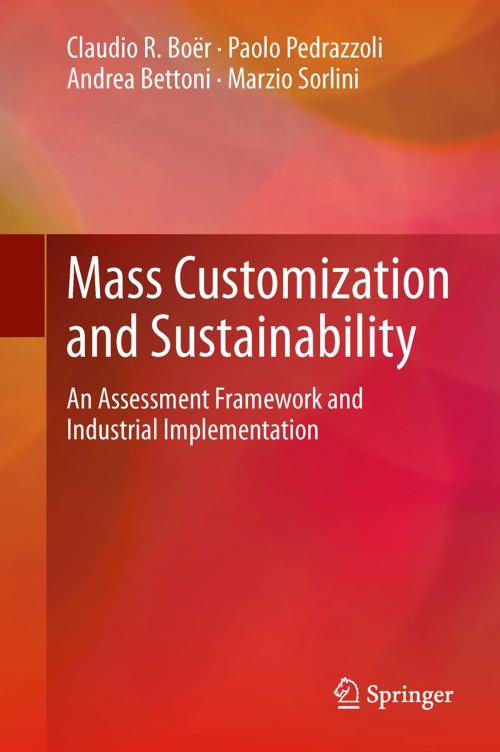Mass Customization and Sustainability
An assessment framework and industrial implementation
Nonfiction, Science & Nature, Technology, Engineering, Industrial, Business & Finance, Management & Leadership, Production & Operations Management| Author: | Claudio R. Boër, Paolo Pedrazzoli, Andrea Bettoni, Marzio Sorlini | ISBN: | 9781447151166 |
| Publisher: | Springer London | Publication: | May 21, 2013 |
| Imprint: | Springer | Language: | English |
| Author: | Claudio R. Boër, Paolo Pedrazzoli, Andrea Bettoni, Marzio Sorlini |
| ISBN: | 9781447151166 |
| Publisher: | Springer London |
| Publication: | May 21, 2013 |
| Imprint: | Springer |
| Language: | English |
To adapt to global competitive pressures, manufacturers must develop methods and enabling technologies towards a personalized, customer oriented and sustainable manufacturing. Mass Customization and Sustainability defines the two concepts of mass customization and sustainability and introduces a framework to establish a link between the two concepts to answer the questions: Are these two aspects empowering one another? Or are they hindering one another?
These questions investigate mass customization as one of the main driving forces to achieve effective sustainability. A methodology to assess the contribution of mass customization to sustainability is developed, providing an assessment model composed by a set of indicators covering the three aspects of sustainability: social, economical and environmental. This is supported and further explained using ideas and new concepts compiled from recent European research.
Researchers, scientists, managers and industry professionals alike can follow a set of practical examples and industrial cases, enabling them to easily transfer Mass Customization and Sustainability theoretical concepts into actions to be enforced into their everyday business for gaining competitiveness. Mass Customization and Sustainability also introduces useful concepts for government officials responsible for establishing sustainable policies and regulations, offering methods to compare the results of implementation of such policies.
To adapt to global competitive pressures, manufacturers must develop methods and enabling technologies towards a personalized, customer oriented and sustainable manufacturing. Mass Customization and Sustainability defines the two concepts of mass customization and sustainability and introduces a framework to establish a link between the two concepts to answer the questions: Are these two aspects empowering one another? Or are they hindering one another?
These questions investigate mass customization as one of the main driving forces to achieve effective sustainability. A methodology to assess the contribution of mass customization to sustainability is developed, providing an assessment model composed by a set of indicators covering the three aspects of sustainability: social, economical and environmental. This is supported and further explained using ideas and new concepts compiled from recent European research.
Researchers, scientists, managers and industry professionals alike can follow a set of practical examples and industrial cases, enabling them to easily transfer Mass Customization and Sustainability theoretical concepts into actions to be enforced into their everyday business for gaining competitiveness. Mass Customization and Sustainability also introduces useful concepts for government officials responsible for establishing sustainable policies and regulations, offering methods to compare the results of implementation of such policies.















